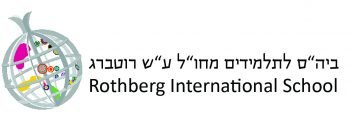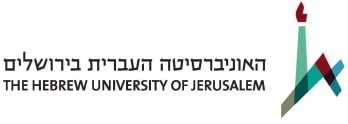I am German.
When I walk through the museum at Yad Vashem, I read posters from 1933 written in my native language that declare Germans superior to all other races.
When I listen to the speeches of Hitler, delivered in front of cheering crowds in 1940 and calling Jews parasites in Germany, I hear him using some of the same German words I use every day.
When I read the names of the Nazi officials and politicians who signed orders to put millions of people in gas chambers, I realize that my grandfather, his cousins, and his brothers had some of the same names: Alfred, Horst, Hermann.
As an intern at Yad Vashem, these parallels bothered me at first. I did not know what to say when visitors asked me how I felt about the fact that all of this happened in “my country.” Of course, it is an interesting question, but I normally avoided giving a clear answer, instead telling them about Holocaust education in German schools, how many interesting Holocaust museums and memorials there are in Berlin, or how much the Holocaust still affects diplomatic relations between the State of Israel and Germany today. I couldn’t explain how I felt about Germany’s history, because I simply did not know. What should it all mean to me?
Eventually, this question started to bother me. I was also bothered when my fellow students at Hebrew University asked me what my grandparents did during the Holocaust – even though I knew they didn’t mean any harm; they were simply curious. It even started to bother me when a Yad Vashem tour guide talked about what “the Germans” did during the War. Every time, I was tempted to interrupt and ask, “Why do you not say ‘the Nazis’? Not all Germans were Nazis.” Of course, the tour guide understood this, and only used the term “Germans” to refer to the Nazi regime that was in power at the time, but I could not stop myself from thinking this way. Slowly, I began thinking constantly about the Holocaust as something perpetrated by Germans.
Then came Yom HaShoah, or Holocaust Remembrance Day. As a Yad Vashem intern, I helped welcome international guests for an evening ceremony. When I asked an older lady if I could help her find her seat, she smiled at me and explained that she did not understand English, only German and Hebrew. We started a conversation, and she seemed very happy to be able to speak the language she first learned as a child in her former home country – my country. She was a Holocaust survivor, had been in several concentration camps, and later met her husband in the refugee camps in Cyprus. As we talked about how she loves reading German newspapers and literature, I realized something profoundly meaningful to me: this woman was not bitter. There was a deep gratitude in her, even as she spoke to me in the language that must remind her of the terrible times she once lived through.
Later that night, as I was standing and singing HaTikvah and remembering the millions of people who died, the fact that I am German meant everything and nothing to me at the same time. It meant everything as I stood in awe of the fact that today our two nations enjoy peace and good relations, and this will forever be meaningful. I also felt that, not being Jewish, I might never fully understand the depth of the connection between the Holocaust and the existence of the State of Israel. But at the same time, I felt it makes no difference that I am German, because Holocaust Remembrance Day take places for the sake of all humanity. Yom HaShoah made me thankful for the chance to be part of an institution whose aim is to remember the people themselves, both those who were killed and the Righteous Among the Nations – those who risked their lives for the sake of saving others.

